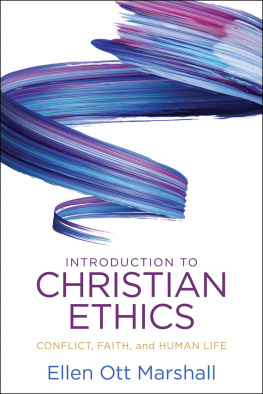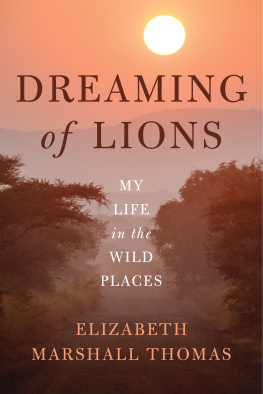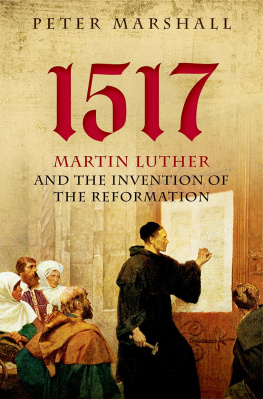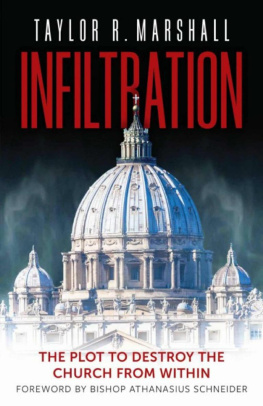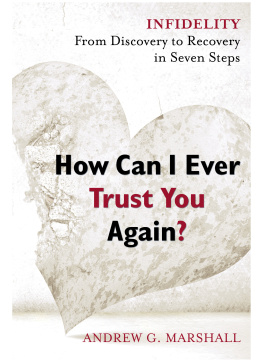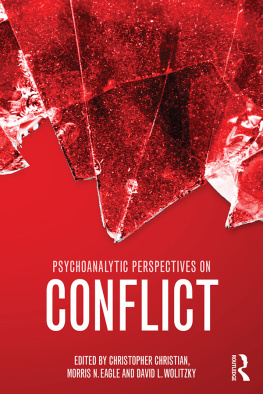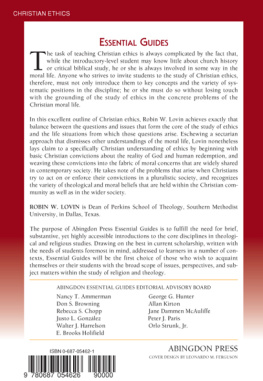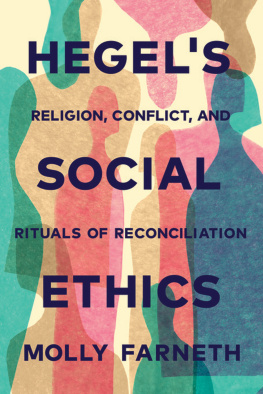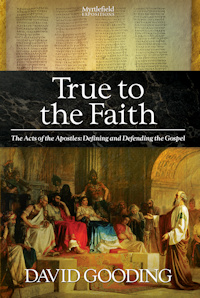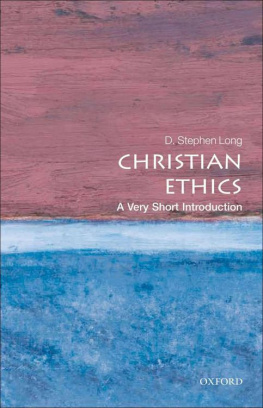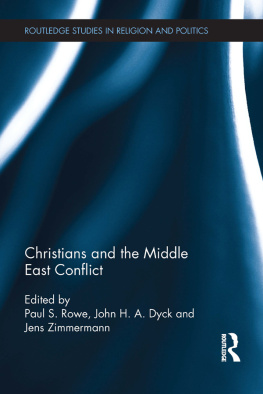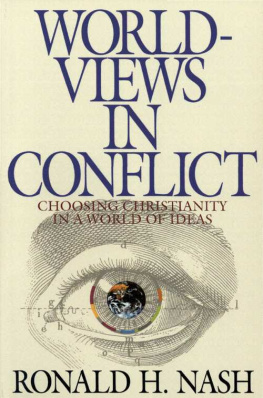In a moment when the public meaning of Christianity and Christian moral responsibility couldnt be more contested comes this excellent text by Ellen Ott Marshall. Introduction to Christian Ethics brings us on a journey of careful critical thinking rooted in clear methodology so we may engage the urgent collective question, How do we live a good life in the midst of ongoing conflict? Marshall doesnt merely ensure that her readers take seriously tradition, reason, texts, and contexts; she also demonstrates that our engagement of such must include critique and reconstruction for the sake of justice and social transformation. She ably demonstrates how these are part of the social-ethical mission at the heart of the Christian tradition. I am eager to use this work with my own students and excited about what it will enable them to go forth and be and do in the world.
Jennifer Harvey, Professor of Religion, Drake University
Ellen Ott Marshalls new Introduction to Christian Ethics is grounded in the novel and timely claim that to study Christian ethics is to study conflict. Deploying a methodology that is contextual, feminist, and Wesleyan, she masterfully explores major theological affirmations and methodological claims of Christian ethics through examples and case studies, all of which return again and again to conflict. This is an introductory text pitched as overview and demonstration, as illustrative, humble, and self-revealing rather than comprehensive, proud, and distant. Marshall claims that one cannot pursue the kingdom of God without entering into conflict. She is absolutely right, and this introductory textbook helps us understand why. Highly recommended.
David P. Gushee, Distinguished University Professor
of Christian Ethics and Director, Center for Theology
and Public Life, Mercer University; author of Still Christian:
Following Jesus out of American Evangelicalism
By acknowledging that conflict is at the heart of the human experience, Marshall offers a radically new and innovative approach to the task of Christian ethics, one that offers creative possibilities for deepening moral reflection. Imaginative, impassioned, practical, and eminently accessible, this book is an essential read.
Rebecca Todd Peters, Professor of Religious Studies and Director,
Poverty and Social Justice Program, Elon University
If you have been looking for an innovative text to teach introductory Christian ethics, then Ellen Ott Marshalls new book is it. How do we live a good life in the midst of ongoing conflict? Marshall uses conflict as an interpretive lens to explicate and rethink theological concepts, such as imago Dei, sin, and reconciliation and ethical theories, such as teleology, deontology, and responsibility. Her keen scholarly insights are also practical insights drawn from experiences of conflict in church and society. With this book, Professor Marshall provides a means to teach our students how to think ethically about and be moral agents who respond faithfully to the ongoing conflict of twenty-first-century life in church and society.
Marcia Y. Riggs, J. Erskine Love Professor of
Christian Ethics, Columbia Theological Seminary
Introduction to
Christian Ethics
Introduction to
Christian Ethics
Conflict, Faith, and Human Life
Ellen Ott Marshall

2018 Ellen Ott Marshall
First edition
Published by Westminster John Knox Press
Louisville, Kentucky
18 19 20 21 22 23 24 25 26 2710 9 8 7 6 5 4 3 2 1
All rights reserved. No part of this book may be reproduced or transmitted in any form or by any means, electronic or mechanical, including photocopying, recording, or by any information storage or retrieval system, without permission in writing from the publisher. For information, address Westminster John Knox Press, 100 Witherspoon Street, Louisville, Kentucky 40202-1396. Or contact us online at www.wjkbooks.com.
Unless otherwise indicated, Scripture quotations are from the New Revised Standard Version of the Bible, copyright 1989 by the Division of Christian Education of the National Council of the Churches of Christ in the U.S.A., and are used by permission.
Scripture quotations marked RSV are from the Revised Standard Version of the Bible, copyright 1946, 1952, 1971, and 1973 by the Division of Christian Education of the National Council of the Churches of Christ in the U.S.A., and are used by permission.
Scripture quotations marked CEB are from The New English Bible, 2011 Common English Bible.
Materials in have been adapted from Ellen Ott Marshall, Affirmation and Accountability: Ethical Dimensions of The Blessed Image, in The Vocation of Theology: Inquiry, Dialogue, Adoration, edited by Rex D. Matthews (Nashville: Foundery Books, 2017). Used by permission. Foundery Books is an imprint of the United Methodist General Board of Higher Education and Ministry.
Materials in have been adapted from Ellen Ott Marshall, Conflict, God, and Constructive Change, Brethren Life and Thought 61, no. 2 (fall 2016). Used by permission.
The graph in is reproduced with permission from Peacebuilding: A Caritas Training Manual, Vatican City: Caritas Internationalis, 2002.
Book design by Drew Stevens
Cover design by Eric Walljasper
Library of Congress Cataloging-in-Publication Data
Names: Marshall, Ellen Ott, 1970 author.
Title: Introduction to Christian ethics : conflict, faith, and human life / Ellen Ott Marshall.
Description: First edition. | Louisville, Kentucky : Westminster John Knox Press, 2018. | Includes bibliographical references and index. |
Identifiers: LCCN 2018025269 (print) | LCCN 2018033695 (ebook) | ISBN 9781611648904 | ISBN 9780664263447 (pbk.)
Subjects: LCSH: Christian ethics.
Classification: LCC BJ1251 (ebook) | LCC BJ1251 .M347 2018 (print) | DDC 241dc23
LC record available at https://lccn.loc.gov/2018025269
Most Westminster John Knox Press books are available at special quantity discounts when purchased in bulk by corporations, organizations, and special-interest groups. For more information, please e-mail .
For Katherine, Zoe, and Steve
Contents
I am fortunate to have wonderful students and colleagues who help me think carefully about the tasks and teaching of Christian ethics. I am grateful to all the students in my introduction to Christian ethics course over the years. My interactions with them in the classroom informed the writing of this book as much as my own notes and lectures did. I have also been lucky to have wonderful doctoral students as teaching assistants in this course. They help me to be a more creative and effective teacher, and their scholarship broadens and deepens my understanding of our field. I am also so grateful to my faculty colleagues in ethics and society at Candler and Emory: Liz Bounds, Robert Franklin, Pam Hall, Tim Jackson, Ted Smith, and Steve Tipton. This manuscript brings together material I have presented in different settings over several years, and I am aware of the many conversation partners who helped the drafts along. In its final stages, the manuscript received particular attention from Susan Hylen, Liz Bounds, Kyle Lambelet, and Ulrike Guthrie. I am incredibly grateful for their close reading and thoughtful suggestions.
I have worked in three educational institutions that perceive and value connections between peace and conflict studies and Christian theology and ethics: Elizabethtown College, Claremont School of Theology, and Candler School of Theology. Christina Bucher at Elizabethtown not only oriented me to my first academic job but also helped me to reunite masters-level work in peace and conflict studies with my doctoral focus in Christian ethics. Her invitation back to Elizabethtown as a Peace Fellow in 2014 also enabled me to think more fully about prominent theological themes running through the literature and practices of conflict transformation. In this world of conflict transformation and Christian ethics, Debbie Roberts has also been my teacher, good friend, and valued conversation partner. At Candler School of Theology, I am grateful for faculty colleagues involved in the Justice, Peacebuilding, and Conflict Transformation concentration: Liz Bounds, Luther Smith, David Jenkins, Beth Corrie, Jennifer Ayres, Greg Ellison, and Deanna Womack. With credit to Beth Corrie for our nickname, this peace posse provided me support when I first arrived at Candler, and a circle for guidance, friendship, and good humor ever since.
Next page
